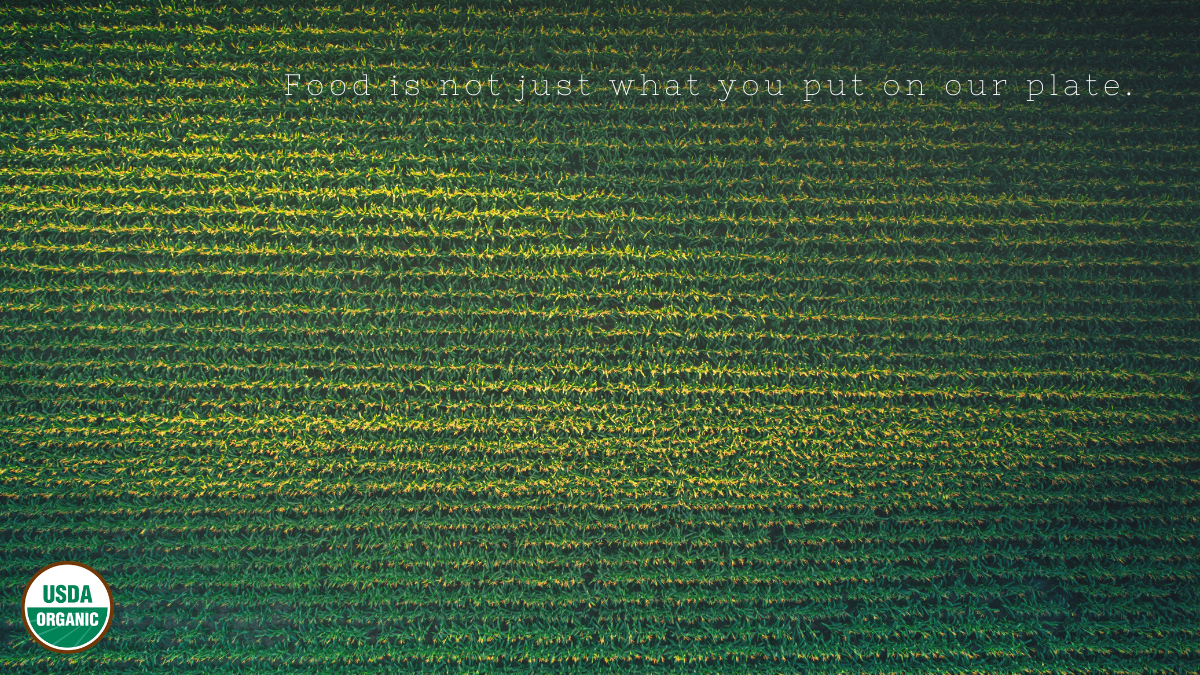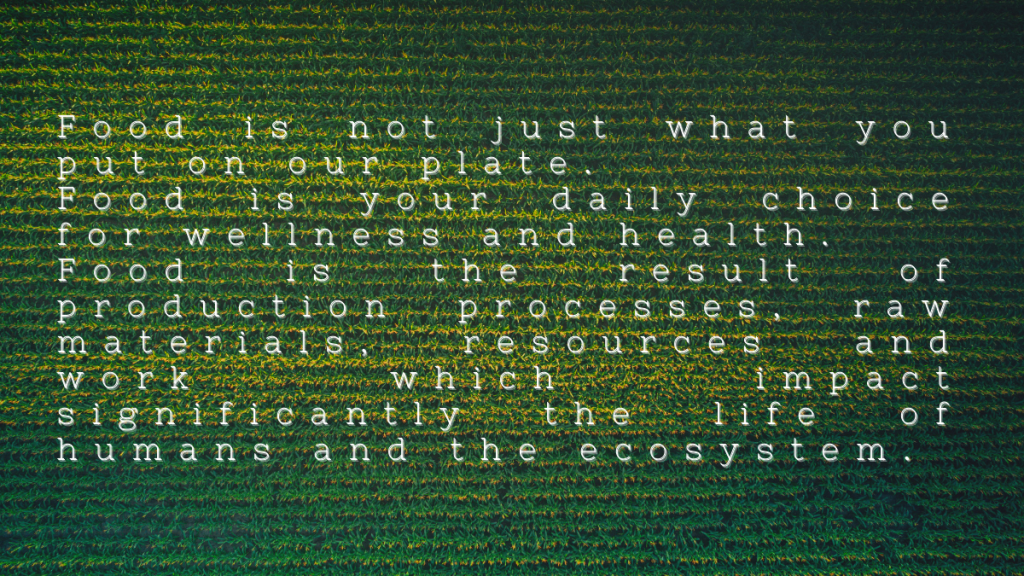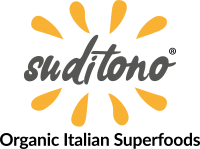
Is Buying Organic Worth it?
And if so, why?
Is “organic” worth it?
It’s consumers who can tell. The worth of organic foods depends on which positive values, qualities and action consumer attributes to such products.
How is organic food different? No, it’s no the higher price, nor the “USDA” logo. Organic food is different as the PERSONAL CHOICE OF CONSUMERS dealing with ethical principles and environmental consciousness. This choice impacts major social and environmental systems.
Well, food is not only a product.
Food is the whole process: from growth and nurturing of plants and animals, to transformation and packaging, each step of food production is subject to different methods and processes, which result in the differences of the final product and its true impact (on health, diet, environment, etc…).
Consumer may choose to buy all this: the awareness of impact of food and food processes on all the spheres regarding human life. It’s finding TRUE PROXIMITY WITH “FOOD AS A PROCESS”, rather than with “food to eat”.

The real means of “Organic”
It’s an ethical issue.
According to regulations, the Organic Certification guarantees the producer and his products comply with specific standards and rules on the subject of farming or livestock.
And that’s clear. However, we don’t but our foods because of its compliance with law. Thus “organic” acquires a different meaning for consumers, more emotional and ethical.
That is, Organic Food comes from agricultural practices which respect naturalness, origin and qualities of raw materials, as well as carry out environmental-friendly methods and technologies, respectful for resources, earth and eco-system.
The USDA Standards as guidelines
More than a logo.
Guidelines and regulations in such complex matter are required. Especially when talking about food, that must accomplish strict quality and security checks in general.
Without, we couldn’t have reference standards, as well as the guarantee and certainty that those standards are met.
The USDA Organic standards require the use of agricultural management practices that are designed to “respond to site-specific conditions by integrating cultural, biological, and mechanical practices that foster cycling of resources, promote ecological balance, and conserve biodiversity,”
(Code of Federal Regulations §205.2)
In short, it means that agricultural food production must carry out practices like crop rotations, preservation of natural habitat and eco-system, reduction of water pollution and soil erosion, protection of biodiversity…all target goals that usually conventional industrial-scale agriculture does not meet.
🌎 FIRSTLY, ENVIRONMENT. This is one of real means the USDA – Organic logo offer to consumers: the certification for a smaller ecological footprint across different steps of food production.
Always remember that our generations are in fight for climate change and extraordinary environmental issues, that our planet runs out of resources in 6 months each year… Agriculture is mostly responsible for pollution and exploitation of natural resources, yet in USA and abroad.
🌿 SECOND, HEALTHY FOOD. Would you still eat your foods if there’s pesticides, fertilizers and hormons listed in the ingredients?
As Organic regulations prohibit the use of most chemicals in production processes, the same substances are not into the final food product. And you won’t eat it!
🙌 FINALLY, SHARED ACTIONS. “Going organic” is a strong claim that involves worldwide producers (and consumers). You can always rely on the “Organic logo” across countries. Remember that USDA “equivalency agreements” apply for organic products imported from other countries (for example, European countries as Italy, Germany, France, etc.), which have been approved by Certification Bodies complying with current regulations.
In some countries, organic standards are often more stringent than Americans! So… Do not distrust for foreign organic products! You see, sometimes they can be more controlled than your local ones. 😊


